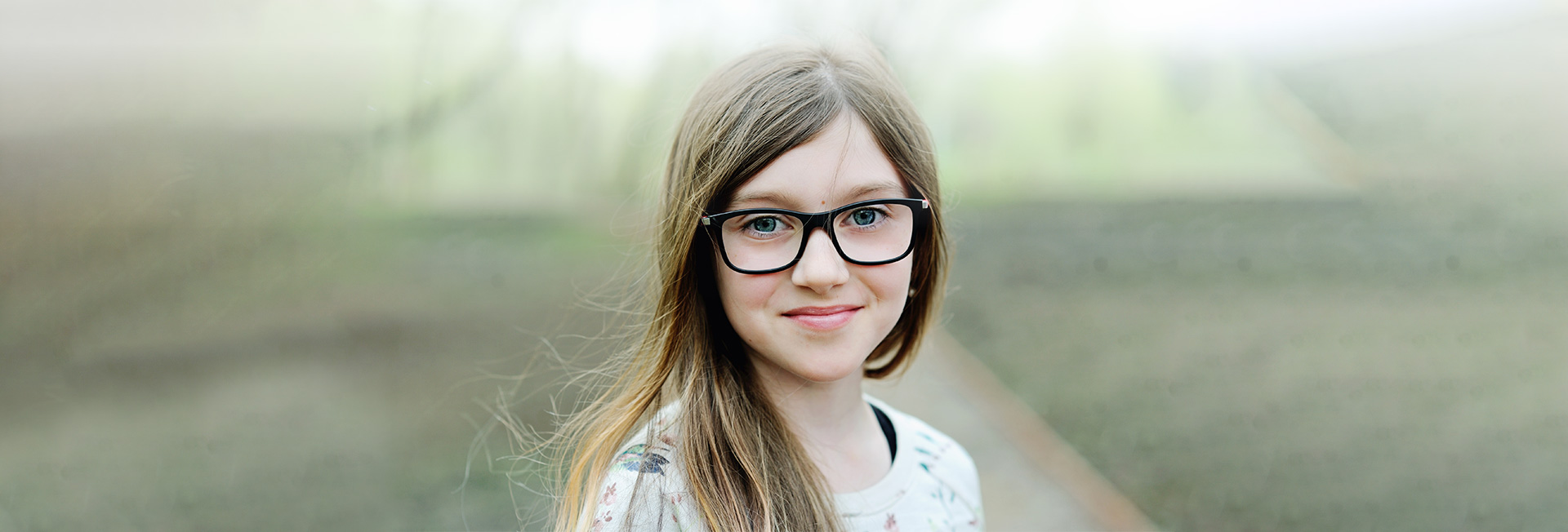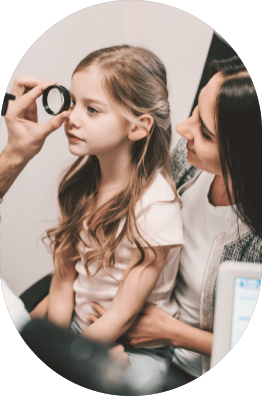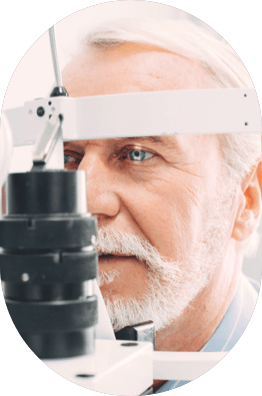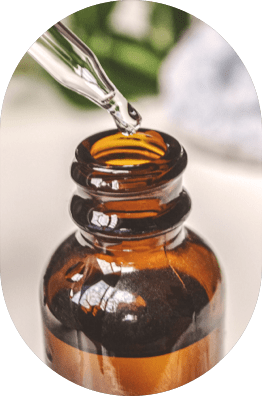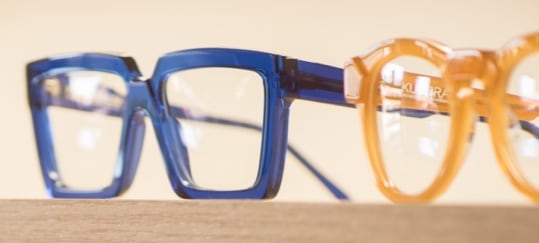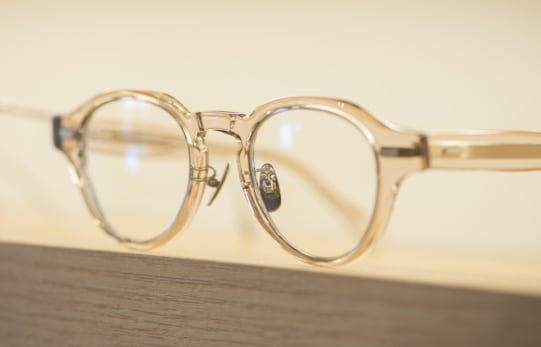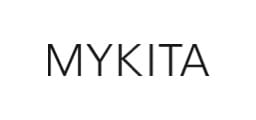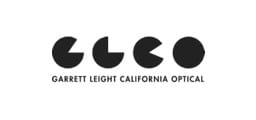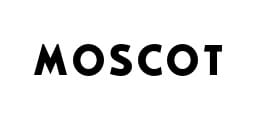A Personalized Approach to Your Child’s Myopia
It’s extremely common for children to be nearsighted (myopic), which means their eyes can’t focus on things in the distance. About 30% of Canadians are nearsighted. Children are increasingly being diagnosed with this refractive error at younger ages: as young as 6 or 7 years old today compared to 12 or 13 in the past.
While myopia can be corrected with glasses or contact lenses, it typically progresses throughout childhood, leaving your child with a higher prescription by adulthood. This is where myopia control comes in. With specially designed glasses and contact lenses or atropine eye drops, we can slow the progression of myopia in children.
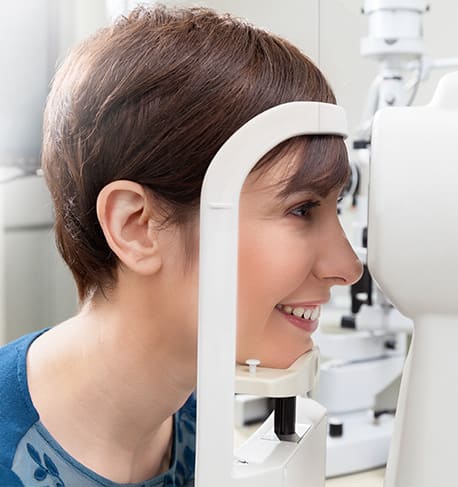
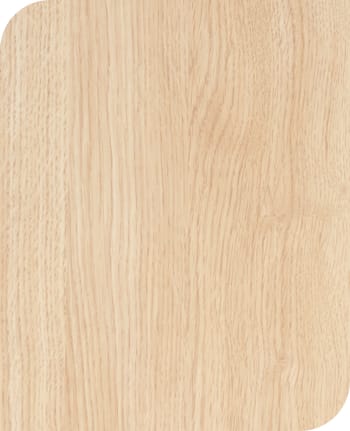
Why Is Myopia Control Important?
Myopia control isn’t just about being able to wear thinner glasses with a lower prescription.
People with high myopia (more than -5 D in the sphere column of your prescription) are at an elevated risk of vision problems like glaucoma and cataracts, and a higher likelihood of retinal detachment.
The great news is that myopia control can be as simple for your child as wearing a new pair of glasses, learning to put in contacts, or getting eye drops at night.
How We Control Myopia Progression in Kids
As part of your child’s eye exam, we’ll test their visual acuity and refractive error. They might be nearsighted, farsighted (unable to focus on near objects), or have astigmatism, which causes blurred vision at all distances. Or, they might be emmetropic, which means their eyes have no refractive error, and they don’t need any vision correction or myopia control.
But if they are myopic, we can recommend one of the following 3 proven myopia control methods based on their needs and age.
Hoya MiYOSMART Spectacle Lenses
If your child already wears glasses, then adjusting to MiYOSMART lenses will be an easy transition. These specially designed lenses correct vision while also slowing myopia progression by an average of 59%.
CooperVision MiSight Daily Contact Lenses
Older children might prefer wearing MiSight contacts to correct their vision. These daily disposable lenses don’t require cleaning, keeping the hygiene regime that much simpler.
MiSight contacts have been shown to reduce myopia progression by 59%.
Atropine Eye Drops
Atropine is the same medication we use when dilating the eyes in an eye exam. It’s also used at a low 0.01% dose for myopia control. Typically, the drops are given at bedtime since they can cause some light sensitivity.
Atropine eye drops don’t correct vision, so your child will still need to wear their regular glasses or contacts to give them clear vision.
Playing Outside May Protect Against Myopia
While there’s not yet a way to completely prevent myopia, there’s promising evidence that time spent outdoors provides some protection against the onset of myopia. The Canadian Association of Optometrists recommends parents encourage at least 90 minutes of outdoor time every day for their children.
Book Your Dry Eye Treatment Today!
We’re located in a shopping plaza by Vince’s Market with plenty of convenient parking.
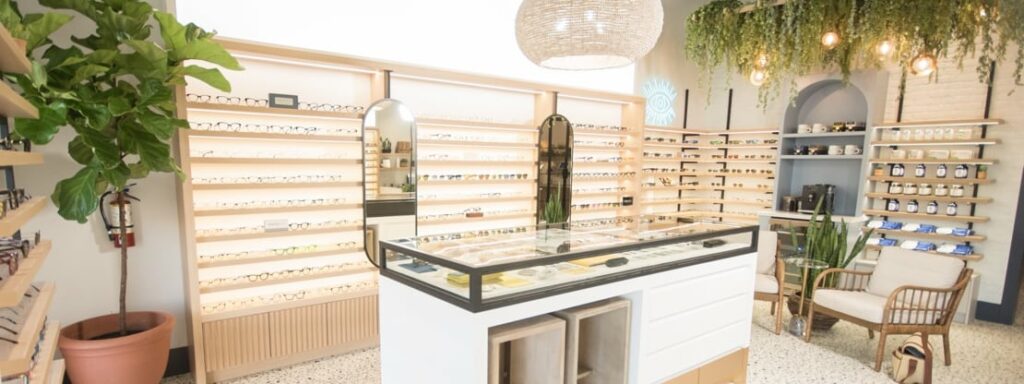
Our Address
- Unit C5–19101A, Leslie Street
- East Gwillimbury, Ontario L0G 1V0
Contact Information
- Phone: (905) 478-2410
- Fax: 905-478-1195
- Email: [email protected]
HOURS OF OPERATION
- Monday: 10:00 AM – 6:00 PM
- Tuesday: 9:00 AM – 6:00 PM
- Wednesday: 10:00 AM – 6:00 PM
- Thursday: 9:00 AM – 6:00 PM
- Friday: 9:00 AM – 5:00 PM
- Saturday: 10:00 AM – 3:00 PM
- Sunday: Closed

